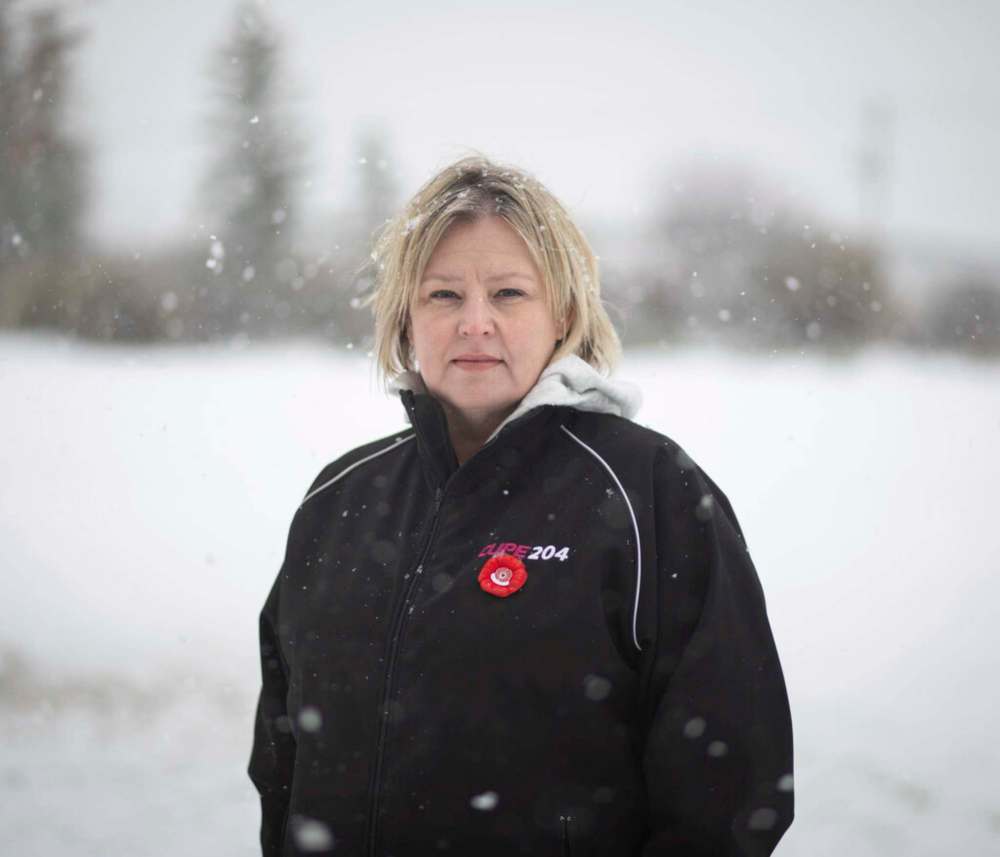Temporary care-home measure now a mainstay
Advertisement
Read this article for free:
or
Already have an account? Log in here »
To continue reading, please subscribe:
Monthly Digital Subscription
$0 for the first 4 weeks*
- Enjoy unlimited reading on winnipegfreepress.com
- Read the E-Edition, our digital replica newspaper
- Access News Break, our award-winning app
- Play interactive puzzles
*No charge for 4 weeks then price increases to the regular rate of $19.00 plus GST every four weeks. Offer available to new and qualified returning subscribers only. Cancel any time.
Monthly Digital Subscription
$4.75/week*
- Enjoy unlimited reading on winnipegfreepress.com
- Read the E-Edition, our digital replica newspaper
- Access News Break, our award-winning app
- Play interactive puzzles
*Billed as $19 plus GST every four weeks. Cancel any time.
To continue reading, please subscribe:
Add Free Press access to your Brandon Sun subscription for only an additional
$1 for the first 4 weeks*
*Your next subscription payment will increase by $1.00 and you will be charged $16.99 plus GST for four weeks. After four weeks, your payment will increase to $23.99 plus GST every four weeks.
Read unlimited articles for free today:
or
Already have an account? Log in here »
Hey there, time traveller!
This article was published 12/11/2021 (1491 days ago), so information in it may no longer be current.
A temporary measure to shore up staffing in Manitoba personal-care homes during waves of COVID-19 has instead become a mainstay, as hundreds of uncertified staffers prompt questions about patient care.
“We’re in a staffing crisis, and if nothing highlights it more than that, then I couldn’t tell you what would,” said Shannon McAteer, health-care co-ordinator at the Canadian Union of Public Employees.
Almost a year ago, Manitoba launched a training program for what it calls uncertified health-care aides, consisting of a weeklong crash course at Red River College Polytechnic.

The idea was to fill gaps in personal-care homes when non-nursing staff get burned out or must isolate after COVID-19 exposures.
“We were led to believe it was only for COVID purposes,” McAteer said.
The micro-credential for uncertified aides requires only a Grade 10 education, with no experience in direct care, and it consists of five days of virtual training and a weekend of in-person instruction. Manitoba pays for the classes if graduates agree to work for three months.
When Manitoba Health unveiled the program a year ago, the department said the uncertified aides would be closely supervised by medical professionals as they helped with duties such as “observation, companionship, redirection, stocking of supplies and more.”
Instead, McAteer said these aides are helping with front-line duties such as feeding, bathing and checking in on residents. Her union asked the province to start weaning itself off the program in late June as Manitoba emerged from a brutal third wave, and undertake a hiring spree similar to what has happened in provinces such as Quebec.
The province ended its state of emergency Oct. 21. Although public-health orders remain in place, McAteer noted that the province is dealing with just two outbreaks at personal-care homes.
“We’re still in COVID, I understand that, but we’re not in a COVID crisis anymore,” she said.
In March, a working group formed to address the issues that led to 56 people dying in the Maples Personal Care Home outbreak urged the province to “recognize the current chronic challenges experienced in the (long-term care) sector in maintaining baseline staffing levels.”
Last week, the province said it was “nearing completion” of a staffing plan.
But for now, Shared Health is still taking applicants for uncertified aides to work in care homes in Winnipeg, Winkler, Morden, Portage la Prairie and the Interlake.
Health Minister Audrey Gordon’s office did not respond to a Wednesday interview request.
Instead, an unnamed Shared Health spokesperson said Manitoba had enlisted 893 uncertified health-care aides, but didn’t explain how many are still currently holding those jobs.
As of Oct. 8, that meant 143 workers in the Interlake-Eastern Regional Health Authority and 126 in Southern Health; most of the remaining 624 likely worked in Winnipeg.
“These staff have been integral in our province’s ongoing response to the pandemic, assisting at a time of great need in the care of residents, patients and clients at personal care homes, supportive housing, alternative isolation sites and acute care facilities,” reads the statement.
NDP health critic Uzoma Asagwara said the PC government should have staffed up before a recent rise in COVID-19 cases.
“It speaks to their downright refusal to come up with a plan,” Asagwara said, noting Manitoba’s seven-day infection rate is suddenly the second-highest in Canada.
“It’s too little, too late at this point, for the government to come up with something.”
Part of CUPE’s concern is its unionized members’ wages and working conditions.
Uncertified aides make $17.73 hourly, while certified aides earn between $18.65 and $21.17.
Permanent staff, already spread thin, are having to train new colleagues with no front-line experience, thus leading to even more burnout. But McAteer is even more concerned that Manitobans are getting sub-standard care for the most vulnerable.
A fully trained aide learns how to calm an agitated person living with dementia, or to look for non-verbal cues that something’s amiss.
“This is patient care that we’re talking about,” she said. “It’s not like you can walk in off the street ― and you used to work in a restaurant ― and today you’re going to care for grandma.”
The province didn’t respond to concerns about unregulated aides being made to take on duties they haven’t been fully trained to do. Asagwara said it’s unfair to put workers in that position.
“They’ve chosen to not address the health-care staffing crisis and instead exploit the very people that they have brought in to address an acute need.”
dylan.robertson@freepress.mb.ca



